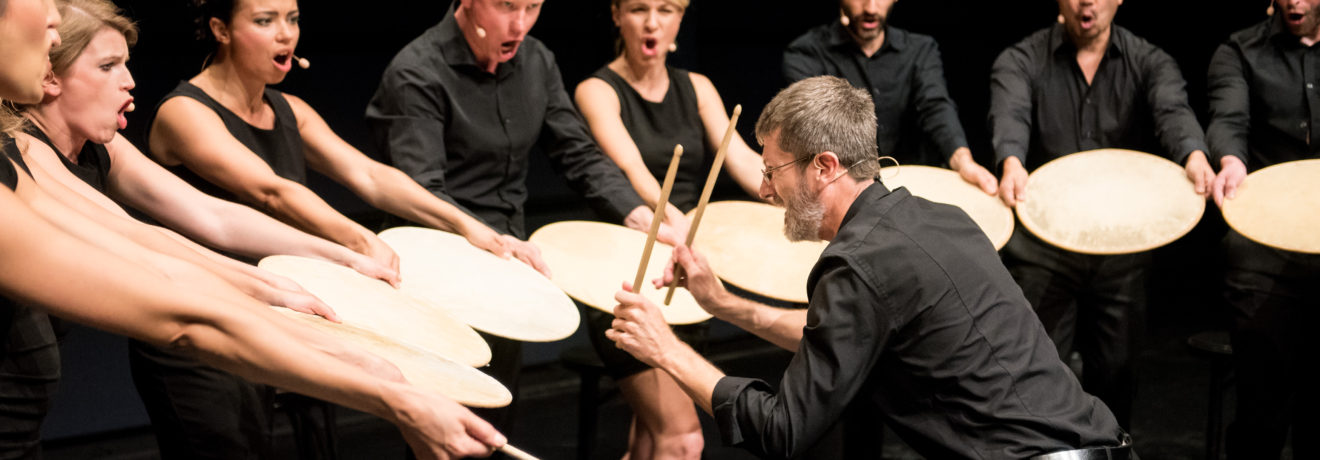Theater Reviews
Songs of Lear at the Brooklyn Academy of Music

Laura Kolb (Baruch College)
Lear’s final speech begins with a sorrowful declaration: “And my poor fool is hanged.” The “poor fool,” here, is usually understood to be Cordelia, whose body he has just borne to the stage, and over whom he laments: “Why should a dog, a horse, a rat have life/ And thou no breath at all?” Yet the line conjures up the Fool himself, Lear’s goad and friend and sometime companion, absent from the stage since the end of Act 3. For a brief, weird moment, Shakespeare asks us to think Fool and Cordelia together. We feel the loss of both.
This line is lost in Songs of Lear, an hour-long performance built out of a King Lear that has been radically pared down, then rebuilt out of a combination of textual fragments, music (composed by Jean-Claude Acquaviva and Maciej Rychły) and expressive movements. But the equivalence it draws between Lear’s daughter and his fool is one of the nodes of the original text from which the company has constructed its strange, stark performance. Under the direction of Grzegorz Bral, the members of Poland’s Song of the Goat Theater have taken these characters—or rather, the overlap between them—as a starting point for a reflection on helplessness in the face of power, and self-mastery in the face of chaos.
 The production unfolds in a dozen or so songs, each of which offers a kind of sonic snapshot of an…
The production unfolds in a dozen or so songs, each of which offers a kind of sonic snapshot of an…
Please login or subscribe to continue reading.
Please subscribe to The Shakespeare Newsletter to continue reading.
Subscribe Now